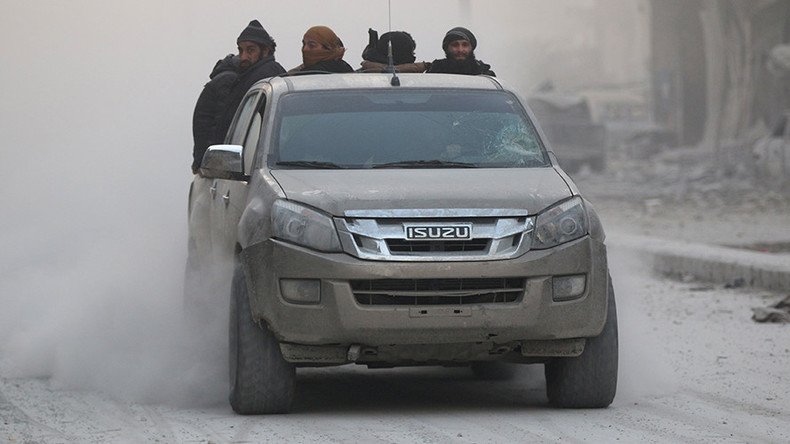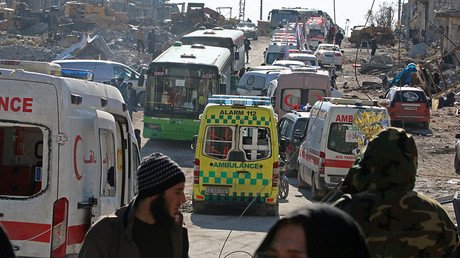Liberation of E. Aleppo has allowed ‘genuine’ separation of ‘moderate rebels’ from radicals – MoD

The Russian backed operation in eastern Aleppo has allowed for a “genuine” separation of radicals from the ‘moderate opposition,’ opening a “new window of opportunity” for a ceasefire in other places in Syria, says the Russian Defense Ministry.
The operation to liberate eastern Aleppo has, in fact, proven unique, Russian Defense Ministry spokesman Major General Igor Konashenkov said on Saturday.
“The accomplished operation of the Russian Reconciliation Center [in Syria] to safely withdraw militants from [eastern] Aleppo with their families is unique, not only because the lives of nearly 10,000 Syrians were saved,” he stated.
According to Konashenkov, “first and foremost, it is about a genuine and complete separation of militants of the so-called ‘moderate opposition’ from the irreconcilable radicals, thanks to the efforts of Russian officers from the Reconciliation Center.”
Konashenkov stressed that Moscow has managed to accomplish “what for a year our American partners considered to be impossible to implement in practice.” An obligation to pressure ‘moderate opposition’ to differentiate themselves from the terrorists in Syria was part of Russia-US agreements signed in Geneva in February and September.
On December 16, the Russian military announced that eastern Aleppo had been fully liberated from militants and terrorists. However, according to Moscow, Syrian government forces are still fighting “isolated pockets of militant resistance.”
Nearly 3,500 militants from eastern Aleppo have surrendered to the Syrian government, while thousands have seized the chance to leave through special corridors with light weapons. The evacuation was partly halted on Friday after militants tried to leave the city with heavy weapons, which is not permitted under the agreement allowing them to exit eastern Aleppo.
Konashenkov noted that the liberation of Aleppo had effectively opened a new “window of opportunity” to introduce a cessation of hostilities, “not only in the Aleppo province,” but also in other regions of Syria, while stressing that “a desire to negotiate with all parties to the conflict directly ‘on the ground,’ except for terrorist groups,” is key to speeding up the peace process in the war-ravaged state.
Attempts to replace this “hard work” with conferences in “cozy Western capitals,” talking to “high representative committees,” or sending in some monitoring group is “useless and a dead end,” he said.
“The sooner it is realized in Paris, London, and Washington, which are so far not even capable of sending humanitarian aid to Syria, the sooner there will be peace,” Konashenkov concluded.













